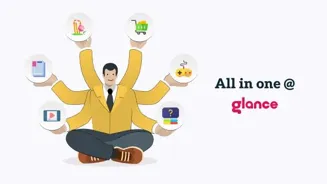Unlocking the Future of Work: Embrace change, adapt to thrive. Dive deeper into the evolving professional landscape
The Indian job market, a pulsating hub of activity, is undergoing a seismic shift. Forget
the slow, predictable climb of yesteryear; today's professional landscape is a dynamic, ever-evolving terrain.
While technological advancements like Artificial Intelligence (AI) and automation are often cited as disruptors, the real story is about adaptation. Future-proofing careers is no longer a suggestion, but a necessity.
Employees and employers alike must embrace a growth mindset, prioritize continuous learning, and foster environments that encourage innovation to thrive in the years to come.
This means reassessing traditional skillsets, embracing remote work possibilities strategically, and cultivating agile, resilient workforces.
Remote work's rise reshapes offices; benefits and challenges emerge, hybrid model likely
The rise of remote work, accelerated by the pandemic, has irrevocably altered our perceptions of the traditional office. While initial anxieties about productivity and connectivity were valid, many businesses discovered the unexpected benefits of a distributed workforce.
Enhanced employee well-being, access to a wider talent pool, and reduced overhead costs are just a few advantages. However, successful remote work requires careful planning and execution.
Companies should invest in robust communication tools, establish clear performance metrics, and prioritize building a strong sense of community amongst their remote teams to mitigate feelings of isolation.
The hybrid model, blending in-office and remote work, seems poised to become the dominant paradigm.
Upskilling vital for survival; tech skills + soft skills essential
Upskilling and reskilling have moved from HR buzzwords to crucial survival skills. The traditional "learn once, apply forever" model is obsolete. The rapid pace of technological change demands that professionals constantly update their knowledge and acquire new skills.
Coding, data analytics, digital marketing, and cybersecurity are some of the in-demand skills, but the focus shouldn't solely be on technical expertise. Soft skills like critical thinking, creativity, communication, and problem-solving are equally important.
Online learning platforms, industry certifications, and company-sponsored training programs are excellent avenues for continuous professional development.
AI transforming industries, augmenting human capabilities, ethical considerations crucial
Artificial Intelligence (AI) is no longer a futuristic concept; it's already transforming industries across the board. From automating routine tasks to providing data-driven insights, AI is enhancing productivity and efficiency.
However, the narrative of AI replacing human workers is overly simplistic. Instead, AI will augment human capabilities, allowing professionals to focus on more strategic and creative work. Those who understand how to leverage AI tools and algorithms will be highly sought after.
Businesses must also address ethical considerations surrounding AI, ensuring fairness, transparency, and accountability in its deployment.
Gig economy offers flexibility but poses challenges for workers
The gig economy, characterized by short-term contracts and freelance work, is another significant force shaping the future of work. Platforms connecting independent workers with businesses have proliferated, offering flexibility and autonomy to both parties.
While the gig economy can provide opportunities for individuals seeking supplemental income or greater control over their schedules, it also presents challenges related to job security, benefits, and worker rights.
Governments and organizations must develop policies and frameworks that protect gig workers and ensure fair labor practices. Building a social safety net that caters to this new reality is paramount.
Future of work requires collaboration for success
The future of work demands a collaborative approach. Businesses must invest in their employees, providing them with the resources and opportunities they need to thrive in a rapidly changing environment.
Educational institutions must adapt their curricula to equip students with the skills of the future. Simultaneously, individuals must take ownership of their professional development, embracing a lifelong learning mindset.
By working together, we can navigate the complexities of the evolving job market and create a future of work that is both prosperous and equitable.
AI Generated Content. Glance/InMobi shall have no liability for the content












